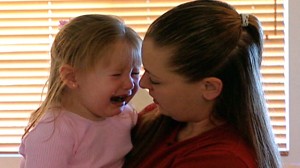How to Help Siblings Cope
Any parent with more than one child knows how much of a juggling act it can be to balance your time evenly amongst all the kids. Being the parent of a child with special needs has an even greater impact. Much like a new baby who abruptly diverts time and attention away from the older siblings, a child with a speech disorder necessitates a period of adjustment for the rest of the family.
Range of Emotions
The sibling of a child with a speech disorder may display a wide range of emotional responses. These emotional responses tend to continually evolve. During one month the older sister may feel ashamed of her little brother, while the next she may feel protective of him.
Worry
At first, the sibling may be worried because he isn’t sure exactly what is going on. Johnny may pick up on the stress that you and your partner experience regarding the speech disorder, but he won’t know exactly why you’re worried. This may encourage him to imagine the worst possible scenario.
Jealousy
When Johnny realizes that his sibling requires more of your time and attention he may become jealous or angry. Some children may act out in response; they may throw temper tantrums or break the rules on purpose in order to get your attention.
Embarrassment
Siblings who attend playgroups or those who are old enough to attend school may also experience embarrassment. They may find themselves struggling to explain why their little sister “talks funny.” This embarrassment can lead to feelings of guilt.
Helping Siblings Cope
Clear communication is critical for helping a sibling cope. Offer age-appropriate explanations about why little Sally needs special help. Younger children can benefit from simple explanations like “Sally needs help using her words,” while older children may be able to understand the disorder if you explain it in simple terms. If the sibling appears anxious or confused about the speech therapy session, arrange for him to quietly observe the session. The sibling may also wish to talk to the speech therapist.
When the sibling appears to understand why Sally needs extra help, talk to him about his feelings. Let him know that it’s okay to feel jealous, angry, or embarrassed. Let your child know that you understand how difficult it can be for him. Whenever possible, set aside some time just for the sibling – whether this means reading a book together for a few minutes, going for a walk, or going to a children’s museum.
Counseling and Support Groups
A sibling of a child with a speech disorder may benefit from psychological counseling. If your child displays signs of severe or chronic anxiety, bring him to a psychologist sooner rather than later. Unabated anxiety can cause physical symptoms as well as mental distress. Support groups may also benefit your child. Ask your child’s pediatrician about local support groups or check out the Sibling Support Project.





